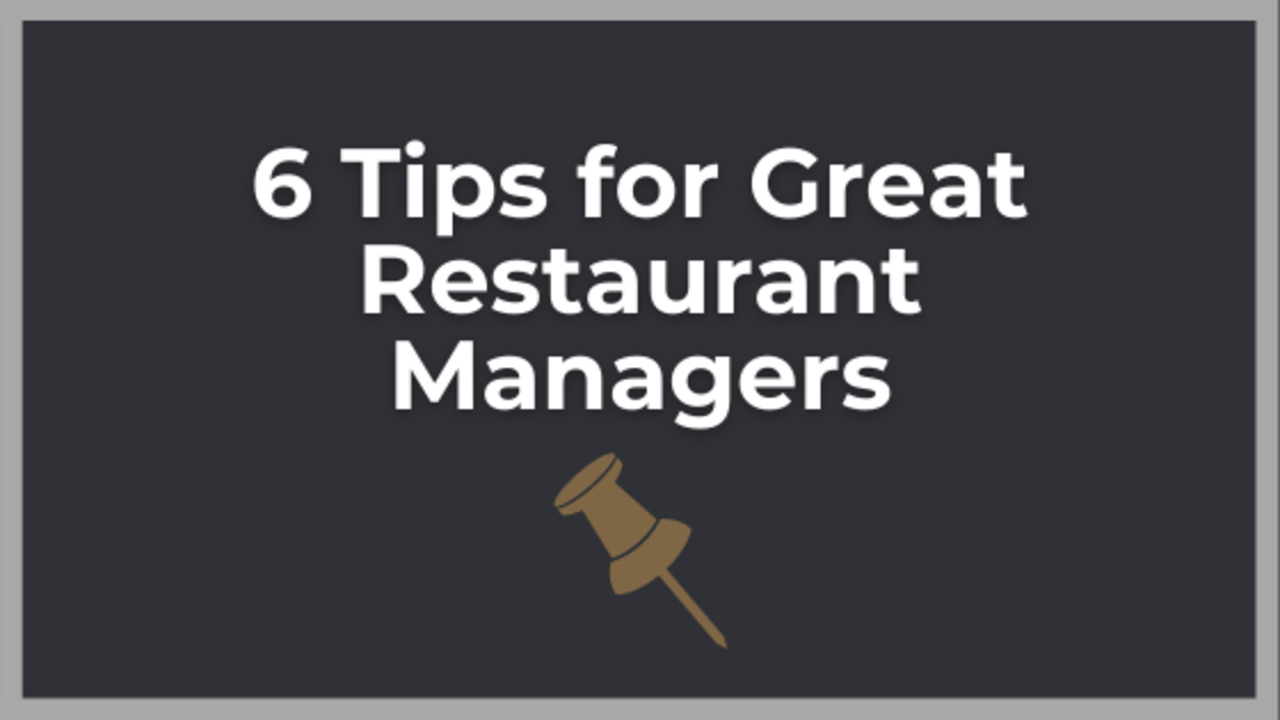Restaurant Management Tips for a Top Notch Team

Are you looking for restaurant management tips and tools for a great team? You're in the right place because if you're dying to have a great management team that gets things done your way. Watch this video, or keep scrolling to read, for six restaurant management tips and tools for a top notch team.
I get it, you want to have a great management team. Heck, I have built my career on that since 2003. I've been coaching independent restaurant owners and managers just like you to put systems in place that allow you to impose your will without being there, to have financial freedom from your business and freedom from your business. The only way you can do that is to have a good restaurant management team. Otherwise, you're a prisoner to your restaurant business.
How do you impose your will? How do you get more out of your restaurant managers so you can actually leave the restaurant and still make the money you deserve?
Here are the six tips.
Number one, make sure that the managers and the employees you hire fit your company culture. You have to make sure that if you run a loosie goosie atmosphere that you don't hire somebody from fine dining. Fine dining restaurants tend to have managers that like order because that’s how they stay on top of those high-dollar guests. Or if you have a fine dining restaurant and you hire a sports bar manager, someone who runs loosie goosie, loves to swear and tell inappropriate jokes, it’s not going to be a good fit. Some of those traits are trainable, right? But the truth is our personalities are who we are. When you hire managers, if service is incredibly important to you, don't hire the person that's all about numbers, numbers, numbers, numbers. First and foremost, hire for your culture.
Number two, teach them your core values. Your core values are who you are as a person, and they almost never change. When you teach people your core values, especially your managers, they can make decisions based off your core values, and they'll never be in trouble. If you have a core value of excellence
Number three, implement checklists. Checklists allow you to impose your will without being there. Checklists cover simple things like the preferred lighting level at the right time, the sound at the right level, the temperature at the right level, everything done your way. You can use checklists for more complicated things like how receive product so that you ensure it's safe and the right pricing and you’re not getting screwed. You can implement checklists to make sure your steps of service are being followed. We can use checklists for cleanliness and setting up stations and closing down stations. Now, the key to making checklists work is holding your management accountable. It’s not the line employee’s fault if something isn’t done. It’s the manager’s job to make sure every employee completes their tasks according to the checklists before sending them home.
Number four, train your systems. You must have a system, a process, a way to doing anything in your business, your way. I run what I call a democratic dictatorship. Things are done my way. But hey, look, I'm going to be open to other people's ideas. Maybe from another restaurant. You did something a different way or because you've been standing there six to eight hours a day, five days a week, you know that something needs a change. I can be willing to listen and make a change. But ultimately, it's my way. Because why? When you move on, I've got to train the next person. I have to ensure the new people are doing it my way. That's critical.
Number five, use a manager log. A manager log is a communication tool, it keeps everybody in the loop. When you use a manager log, you teach you managers that you care about the details. You’re telling them that thorough communication is part of the culture and the expectation of their job. Instead of you have to chase them for the information you want. Think about how many times you've left your business and said, hey, man, what are covers? What were our sales? Who's on the shift? And you go down this list, did we place an order? How much did you spend? When the manager doesn’t know, it makes you mad. They’re the same questions you ask every day, but when you leave the building, you’re leaving them to gather the answers. Get them to use a manager log and train them to use it as the communication system it’s intended to be.
Number six, hold weekly manager meetings. A manager meeting allows you to communicate what you hit or miss from last week and what the priorities are going into the next week. That way everybody's on the same page.
If you want to have a top notch restaurant management team, follow these six things.
For more help with your restaurant managers, sign up for my free webinar, The Secrets to Holding Your Restaurant Managers Accountable."
Be sure to visit my YouTube channel for more helpful restaurant management video tips.




